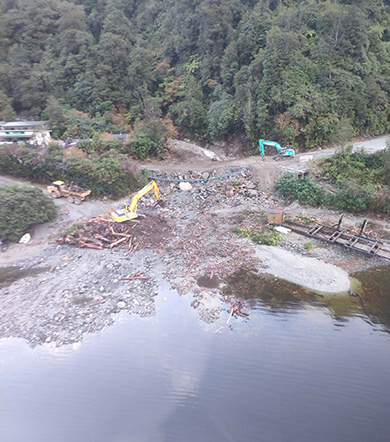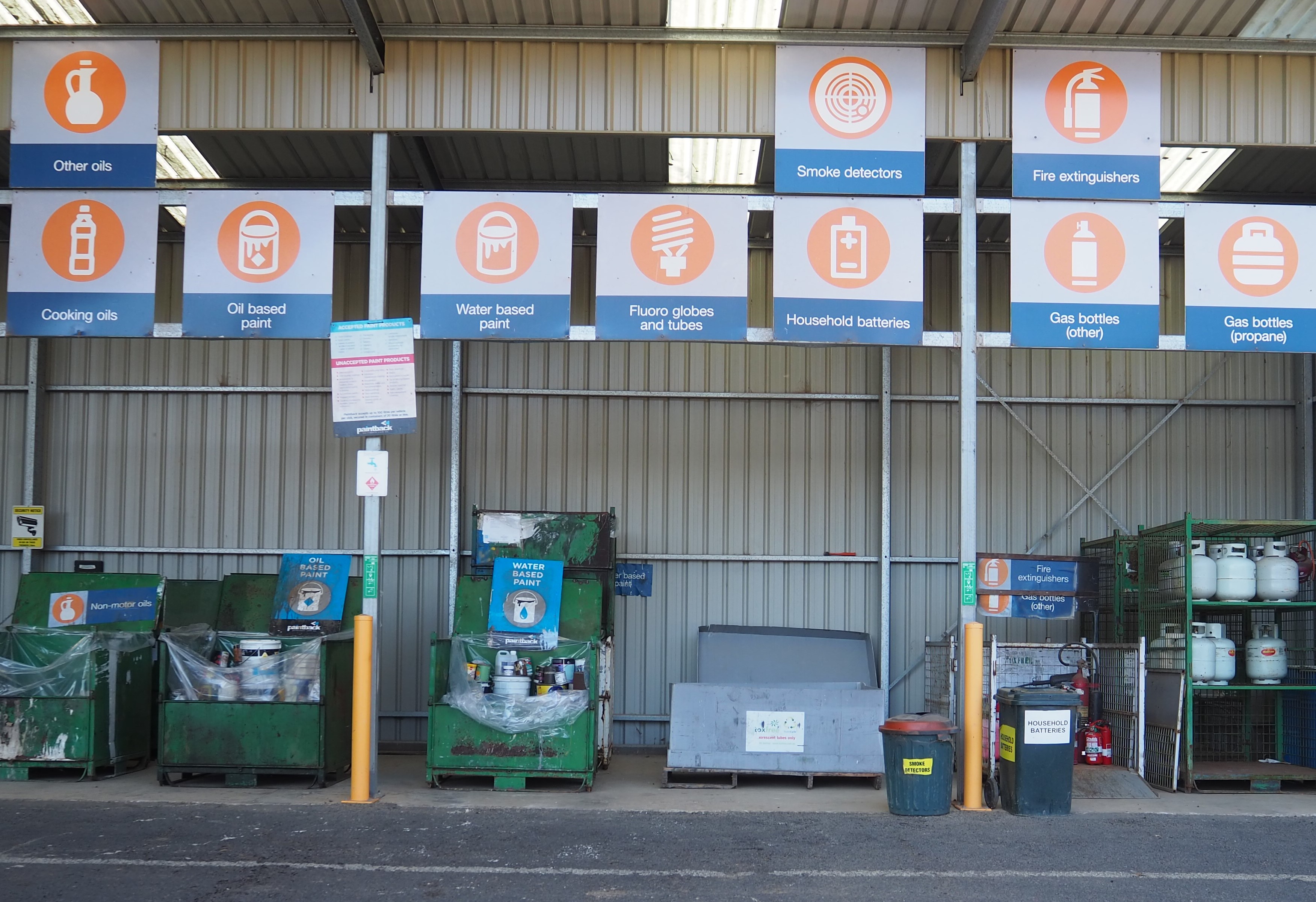On 1 June, heavy rainfall triggered a landslide which produced a large debris flow that washed out a section of Wilmott Pass Road, damaged buildings, and blocked a significant concrete culvert.
Early geotechnical findings released in recent days show there is a significant risk further heavy rain could trigger more landslides and debris into the path of the accommodation facilities, which are used as a popular school camp.

Emergency remedial works in the days following the June slip
Image: DOC
DOC operations director Southern South Island Aaron Fleming says while the findings are preliminary, the current information is clear.
“Based on the current information, neither DOC nor the Deep Cove Education Trust are comfortable having people continue to stay overnight.
“We’re working with expert geotechnical engineers urgently to gain a better understanding of the risks, and what possible remedial measures could be used to enable a safe reopening of the site. This work is expected to take some time to complete and requires further detailed assessments of the site.”
“We understand this closure will be disappointing news for those who have fond memories of their experiences there, and those who were looking forward to future camps, but safety has to come first.”
Deep Cove camp is known as a rite of passage for many school-aged children from around Southland and Otago, with a camp history stretching back to the 1970s.
Deep Cove Outdoor Education Trust chairman Mike MacManus says the decision was not made lightly.
“Visitor safety has to be our first priority and in this situation we are very pleased to be working with the experienced team at DOC Te Anau, and industry experts, and have confidence in reaching a timely resolution.”
“As a Trust, our focus is on the young people who attend and love our camps at Deep Cove, and they are the reason we do what we do.”
The Trust is working directly with schools who may be impacted by the closure, while DOC has notified other businesses and users who are affected.








